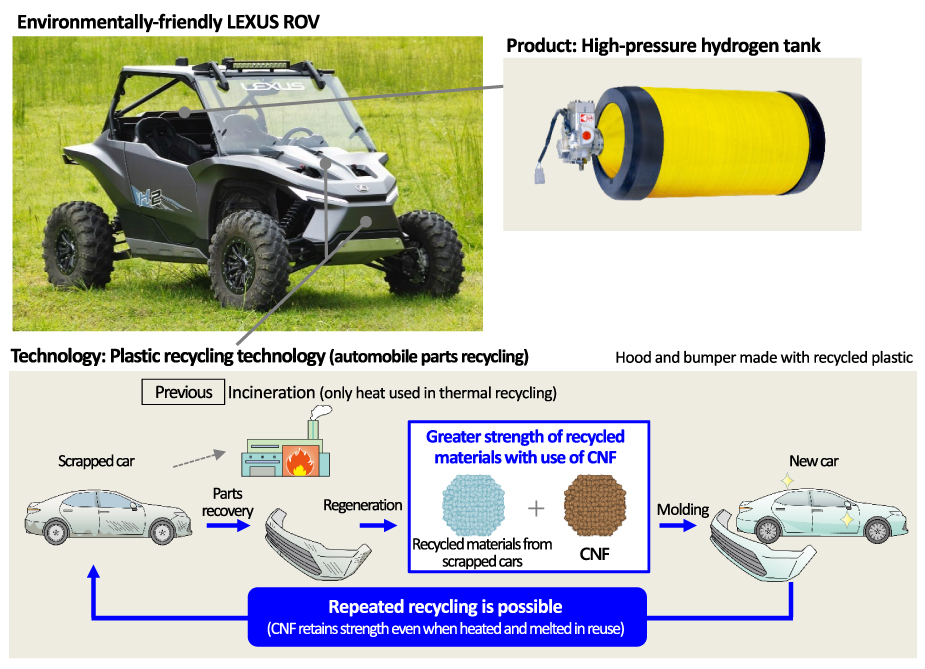Toyoda Gosei Co., Ltd.’s hydrogen tanks and plastic recycling technology have been adopted in LEXUS’s first recreational off-highway vehicle (ROV)1 equipped with a hydrogen engine. This ROV is used in a customer experience program2 started by Lexus International (LEXUS).
As LEXUS advances toward its goal of achieving carbon neutrality, it is pursuing the joy of vehicles that highlight an outdoor lifestyle that is harmonious with nature, while also using data accumulated through a customer experience program as feedback in technical development for future commercialization. Toyoda Gosei supports these activities with its expertise in plastic materials and other strengths that leads the way toward carbon neutrality.
LEXUS ROV adopts a hydrogen engine and provides both high environmental performance and the pleasure of driving with the feel of a real, throbbing engine. The hydrogen fuel is stored in Toyoda Gosei’s high-pressure hydrogen tank, which features both high airtightness that seals in hydrogen and high pressure resistance to efficiently store hydrogen. In exterior plastic parts, recycled materials from end-of-life vehicle bumpers are used to achieve “horizontal recycling” that reuses scrapped parts in new vehicles. The application of recycled materials to automobile parts with high quality standards has been achieved through both Toyoda Gosei’s materials technology to strengthen recycled materials with the use of a biomaterial (cellulose nanofiber or CNF, which is five times stronger than steel) and the performance evaluation technology of Toyoda Motor Kyushu, Inc.
1 A concept car that envisions a lifestyle of driving in places surrounded by nature that can only be reached with an off-road vehicle, while enjoying excellent responsiveness and a sound that stimulates the five senses.
2 Details will be announced in due course.

SOURCE: Toyoda Gosei
